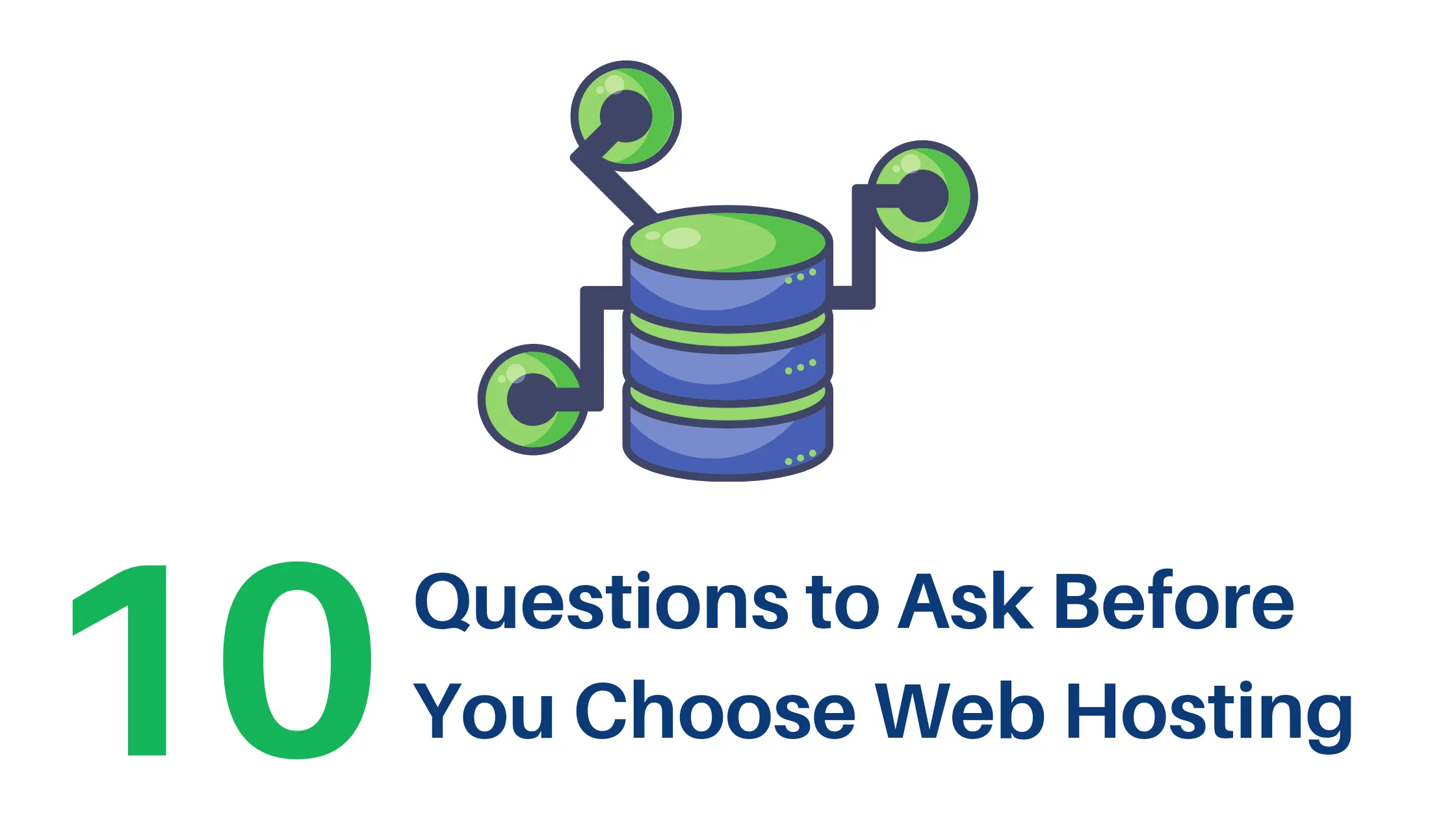If you want a digital presence, you have to engage a web hosting provider; your site needs to be hosted by a suitable web hosting solution. There are tons of web hosting providers in the market. For those new to web hosting, fret not; we’ve got you covered here.
Why Having a Quality Web Host is Important?
Web hosting is a service offered by a web hosting provider; they provide the physical location where all your website’s files are stored and the technology to publish your site so it can be accessed online. A website is only as good as the web host that hosts it.
That is why finding a quality web host is highly crucial as it is an essential component of a successful website:
Higher Performance
Time is of the essence; your visitors will not waste their precious time waiting for your site to load completely. So, no matter how beautifully designed your site is or how solidly good your products are, low performance and snail loading speed are enough to turn your customers away. Speed up your wordpress website for better performance.
Also, low performance can impact your Search Engine Optimization (SEO) rankings. You’d want high performance with blazing speeds so that you consistently rank high on the Search Engine Results Pages (SERPs).
Reliability (Uptime)
A quality web host is trusted and reliable. You’d want one that promises almost 100% uptime and delivers. This uptime is important as this impacts your site’s availability to your customers. A good web host offers high uptime (99.99%); you’d want your site always to be available 24/7. You should do your research such as reading this Siteground hosting review so you can see if they deliver on the promised uptime.
Security
Your site’s security is only as strong as your web hosting provider. A top-notch web host ensures that your site is well secured. Nobody wants to visit a site that is laden with malware, viruses, or has been hacked before. Quality web hosts provide all the necessary security measures, including continuous spam filtering, virus/malware scanning, security audits, SSL certificate, security plugins, patches, etc.
10 Questions You Need to Ask Before You Choose Web Hosting
Since the web hosting provider you end up with affects your website, which ultimately determines your business success, you need to take some time to do your due diligence. Here are some questions you need to ask to help in your decision making:
1. What is Your Budget & Your Website’s Needs?
Everything comes with a price. The same applies to web hosting plans. It doesn’t always mean the cheaper, the better, or the pricier it is, the better. It’s more of getting a plan that meets your needs and budget.
For example, if you’re tight on budget and your site doesn’t need a lot of resources (personal blogs, smaller businesses), you can go for shared hosting. However, if you need more (medium-sized businesses) and have the budget for it, you can opt for VPS hosting.
And, if you have the budget and run a large business site that needs intensive resources, you can go for dedicated hosting.
2. What is the Uptime Offered?
A business site needs to be available 24/7; all business owners do not want any disruption in their business. A downed site = traffic loss = revenue loss. As such, your web host must have high-specs and powerful servers with strong, stable network connections. You should look for an uptime score of 99.99% or better; anything below 99% is not acceptable.
As such, go for a reputable web host that guarantees their uptime with servers at world-class data centers with redundant power supplies and resources with top-notch cooling systems. You also need to find out if there’s any compensation if the web host fails to upkeep their promised uptime.
3. What are the Offered Types of Hosting Plans & How Scalable are They?

Caption: In general, these are the types of hosting plans available (Source: Hostgator )
Business is dynamic and has needs that change rapidly with time; these can impact your web hosting needs. As such, you’d want to know what’s on the table along with the respective pricing, so you can plan and decide better.
You’d want to know whether it is easy to scale up or down in the future. What are the policies involved when you want to change your hosting plan? You should check your scalability options ahead of time, so you know what you’re in for.
Go for a web hosting provider with a range of different hosting options to cater to these possible future changes. This is so that you have the flexibility to change your hosting plan without changing your provider.
4. What is the Renewal Fee?
Most web hosting providers offer you low rates, especially if you're signing up as a new customer. However, such low prices usually come with a catch or more; you’re tied to them for a minimum of 12 months. This usually poses no issues, but the issue in question comes in after these 12 months are up.
There are some who jack up the pricing when you renew your hosting plan. Take note of this and check on the future pricing to help you decide better.
5. What are the Security Measures in Place?

The most concerning types of cyber threats on a scale of 1-5 worldwide as of November 2020 (Source: Statista )
Nobody is going to visit your online store or website if it has been hacked before. So, if you cannot convince your customers that your site is tightly secured, you can kiss your business goodbye. This explains why this question is highly essential.
Find out what security measures and features are given by the web host for all the hosting plans. Check out their maintenance plan; how often they perform updates and patches to the software and plugins, scanning for viruses/malware frequency, etc.
It would be good to inquire about the encryption keys used; 128-bit encryption is good but 256-bit encryption is better as it is deemed to be military-grade encryption. Also, check if SSL/TLS is supported.
Bear in mind if your site accepts credit card payments, it is best if they offer TLS v1.1 or better. Transport Layer Security (TLS) has a level of encryption superior to that of Secure Socket Layer (SSL) and is recommended to safeguard your user’s payment data. You’ll also need an SSL certificate to secure connections between your site and the user.
6. What is the Backup Schedule?
Backups are perhaps one of the most essential necessities when it comes to running a website. This is because accidents can happen anytime, and when they do, you’ll need your most recent backup to help get your server back up and running in no time. As such, backups need to run regularly to ensure the latest data is always saved.
The web host should run backups at a minimum on a daily basis as this can help you restore your website anytime you need. Take note that ALL files must be backed up, including database and media files.
7. What is the Support Available?
This is a question that most may overlook and not ask. However, it is essential for you to know the support you’ll get. Especially when you’re new to all this, you MUST know what type of support and Service Level Agreement (SLA) is on the table.
Look into their knowledge base or any active forums and check if they’re continuously updated. What are the channels available to you when you need help? Any toll-free phone number, e-mail or ticket system, live chats?
Most would provide 24/7 support. You shouldn’t go for anything less as you’ll never know when you need help; problems and outages can happen anytime. Also, find out their average response and resolution time. It’s no point if they have an extensive support system in place when no prompt and useful response is given.
8. Any Disaster Recovery Plan?
While we would like that the servers are up at all times, we need to be realistic. Servers are not infallible; outages can happen. So in the event, a server is down, what next? Any recovery plan?
For most sites, a server being down for less than five minutes may not be much of an issue. However, if you’re operating an eCommerce store, especially when it’s the end of year sale season, a downtime of five minutes translates to significant revenue loss.
As such, make sure your hosting plan includes a facility to allow for a mirrored server. This is so that in the event your server goes down, this other server will immediately kick in; business will not be disrupted.
9. What are the eCommerce Features Available to You?
This question is more relevant if you plan to launch an eCommerce store. You have to find out from the provider if they have the necessary to help you run your store; they need to have the tools and features you need to operate your eCommerce site, namely shopping cart, payment processing, shipping calculator, etc.
10. Any Hidden Fees?
Before going ahead with any plan, read any fine print thoroughly and search for any hidden fees. This is crucial as there are some web hosts that charge separately for many other things, such as the setup, any excessive bandwidth use, etc.
Also, are there any extra charges for having multiple add-on domains? This is because chances are, you’ll need to accommodate extra domains in the future. In short, iron out any hidden fees so that you won’t be treated with an unpleasant shock when you receive the bill.
Conclusion
As a business owner, running a web business is already plenty tough; you won’t want to add to your burden with web hosting concerns. Therefore, it is critical that you do your due diligence (even more so, if you’re new to all this) to find a quality web hosting service that is secure, fast, reliable, and meets your users’ needs.
Most web hosting providers claim to offer everything you want. However, as you dig deeper, you may find lots of disappointing loopholes. Remember, your business and brand’s future lies in your ability to find the best and suitable web hosting service.
As such, ask all the right questions; you can start with the list of questions as above. This can help you narrow down and select the best provider to help you grow your site into a sure success.
Loading comments...

